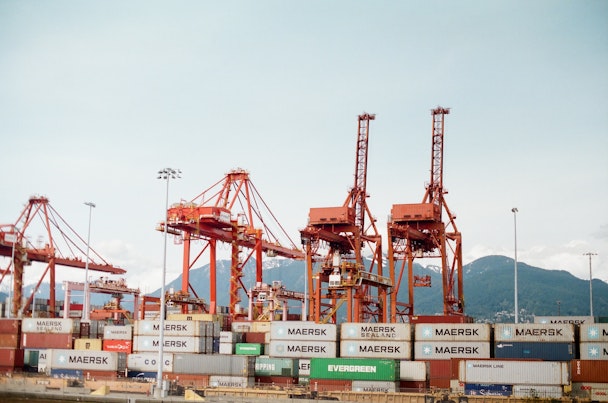How digitization sustained globalization in a restricted world
Our internationally-connected economy and market globalization has radically affected and transformed the e-commerce and marketing industries. This progression has changed what it means to ‘grow’ and is now more likely to include an international, multicultural and multilingual customer base.

Access to global markets has been a new frontier for some retailers
For retailers that have already saturated their domestic market, globalization gives them access to new customers and new capital in global marketing. We explore how, despite the obvious consequences of the pandemic, globalization is continuing to evolve and what the future holds for e-commerce and marketing as a whole.
Globalization during a global crisis
For many businesses, this has been a challenging two years. Following Brexit, we were met with Covid-19, which ceased most operations and even human interaction.
However, those that invested in digitization continued to trade and keep business running almost as normal. Retail as an industry was the biggest digital ad spender in the UK in 2020, accounting for one in five digital ad pounds, with a 20% share of all UK ad spending.
Growth in multi-channel retailing coincided with the progression of globalization. The internet and e-commerce equipped smaller businesses with the ability to promote and distribute products worldwide. This has caused chain retailers to expand globally just to keep up the pace for new customers and revenue streams.
As online retail continues to grow, it’s estimated that 95% of all purchases will be through e-commerce by 2040.
The challenges and opportunities of globalization
Previously, shopping was a ‘hands-on’ experience of spending the day in a shopping center and trying on clothes and cosmetics, as well as having face-to-face conversations with customer service assistants. Now customers have high expectations because of online shopping; a seamless customer journey, a prompt delivery/collection service and a ‘touch-free’ experience.
Dealing with language and culture differences, finding effective advertising and distribution methods, and making relationships with local suppliers are important components of effective globalization. The same level of expectation achieved in your domestic market can be difficult to replicate in multiple countries.
Securing social acceptance of your brand and products is an important step in getting into a new marketplace. Products and services are not always viewed in the same way, and a successful business model in one country doesn’t always translate effectively.
Similar cultures and similar economic and market opportunities in the European market make it much easier to break into the US markets. The USA is the UK’s largest source of imports, accounting for 13% of total imports.
There are several retailers who have created a successful global strategy. We can use the Bosco Index to rank retailers based on their investment in paid and organic media. The median score for retailers is 575.
Ikea (Bosco Index: 706) prides itself on its cost-cutting policy, and to run effectively around the world it requires globalization of production. Ikea maintains production sites in the 30 countries it operates in, cutting the costs of logistics and manufacturing that would otherwise become unfeasible when working on a global scale.
Another recent challenge is to find global talent, and it’s become extremely difficult to hire new people. Based on findings from our own team in Sydney and Melbourne, it has become almost impossible to find data scientists.
In all sectors, candidates were not looking to switch roles during the pandemic and are still hesitant to do so following the furlough scheme, uncertain job prospects and pandemic insecurity.
It’s tempting to think that we’re now in a global market for talent, which means there are more opportunities to hire a team in India or Guangzhou, but the reality is businesses still want to speak to employees face-to-face. Time zones and separation make it difficult for teams to navigate their strategy.
One bonus is the flexibility of remote working, and video calls are now much more accepted. It took a year of Zoom-bombing, being stuck on mute and embarrassing antics in the background, but video meetings work now in ways that were unheard of in 2019.
Attracting talent will lean toward more businesses being 100% remote and spending their office budget on company culture instead.
What does the future look like?
Businesses have been forced online to remain solvent in today’s climate. Access to global markets, despite the rise of protectionism and decisions such as Brexit, have been a new frontier for some retailers, many of whom have recorded record profits during the lockdown. It’ll be fascinating to see whether consumers will stay online permanently, and which aspects of the high street return.
Understanding where and when to invest in media has never been more important. Bosco gives brands and agencies the power of predictive analytics, connecting and transforming your marketing data to provide powerful insights. Book a demo to find out how Bosco can help your business.
Content created with:

BOSCO™
The Digital Marketing Prediction Index - Spend your marketing budget efficiently and with certainty.
Find out more
